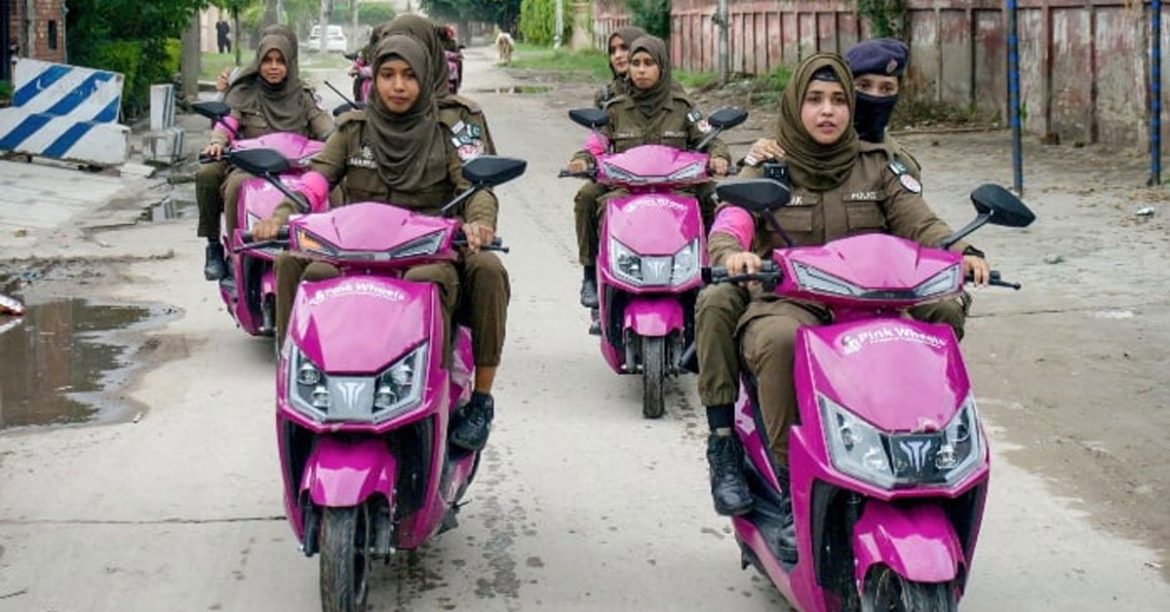- Amina Sohail, a 28-year-old from Karachi, is the first woman in her family to join the workforce, working as a ride-hailing service driver to support her family amidst Pakistan’s economic struggles.
- Despite societal pressures, other women like Hina Saleem and Anum Shahzadi are also breaking norms by entering the workforce, contributing to household incomes, and challenging traditional expectations.
- Pakistan is experiencing a shift among urban middle-class women, who are increasingly stepping into the workforce due to economic pressures, with many now supporting their families and defying conventional gender roles.
Amina Sohail weaves through the congested streets of Karachi, drawing attention as a rare sight: a woman riding a motorcycle in the bustling city.
At 28, she is the first in her family to step into the workforce, a trend increasingly common in urban households in Pakistan facing financial strain.
“I ignore the stares and comments; I focus on my job,” said Sohail, who began working for a local ride-hailing service earlier this year.
“Before, we struggled to eat. Now, we can afford two to three meals a day,” she added.
Pakistan is grappling with ongoing political and economic turmoil, reliant on IMF bailouts and loans to manage its debt. Prolonged inflation has sharply increased the cost of basic necessities, with prices for items like tomatoes soaring by 100%, and electricity and gas bills rising by 300% since last year, according to official figures.
Previously, Sohail spent her days helping her mother with household chores and caring for her younger siblings. But when her father, the family’s sole breadwinner, fell ill, everything changed.
“The atmosphere at home was tense,” she recalled, as the family had to rely on relatives for financial support. “That’s when I decided I needed to work.”
“My perspective has shifted. I will work openly, just like any man, regardless of what others think.”
Pressure to marry Pakistan, the first Muslim country to have a female prime minister in the 1980s, boasts women CEOs on Forbes power lists and women serving in the police and military. However, much of society still adheres to traditional norms, requiring women to seek family approval to work outside the home.
Also Read:
Is Global Warming Responsible for Monsoon Brides in Pakistan?
According to the United Nations, only 21% of women in Pakistan participate in the workforce, most of them in the informal sector, with nearly half working in rural areas, primarily in agriculture.
Hina Saleem, a 24-year-old telephone operator at a leather factory in Korangi, Karachi’s largest industrial hub, is also the first woman in her family to work. Despite support from her mother following her father’s death, she faced resistance from extended family members.
Her younger brother was warned that her working could lead to socially unacceptable behaviors, such as choosing her husband.
“My uncles insisted, ‘Get her married,'” she shared. “There was a lot of pressure on my mother.”
At the shift change outside the leather factory, workers arrive in vividly painted buses adorned with jingling bells, with a few women emerging amid a sea of men.
Nineteen-year-old Anum Shahzadi, who works at the same factory entering data, was encouraged by her parents to join the workforce after finishing high school, unlike previous generations of women in her family.
“What’s the point of education if a girl can’t be independent?” said Shahzadi, who now contributes financially alongside her brother.
Bushra Khaliq, executive director of Women In Struggle for Empowerment (WISE), an organization advocating for women’s political and economic rights, noted that Pakistan is witnessing a shift among urban middle-class women.
“Traditionally, society told women that managing their homes and marriages was their ultimate goal,” she told AFP. “But economic hardships and crises often bring new opportunities.”
Sharing responsibilities Farzana Augustine, from Pakistan’s Christian minority, earned her first paycheck last year at the age of 43, after her husband lost his job during the COVID-19 pandemic.
“My wife had to step up,” explained her husband, Augustine Saddique.
“But it’s nothing to be ashamed of; we’re partners, running our household together.”
Karachi, Pakistan’s sprawling port city with an official population of 20 million—though likely many more—serves as the country’s business hub, drawing migrants and entrepreneurs with the promise of employment and often acting as a bellwether for social change.
Nineteen-year-old Zahra Afzal moved to Karachi four years ago to live with her uncle after losing her parents. Leaving behind her small village in central-eastern Pakistan, she now works as a childminder.
“If Zahra had gone to other relatives, she would have been married off by now,” her uncle Kamran Aziz shared, speaking from their typical one-room home where bedding is stored away during the day and meals are prepared on the balcony.
“My wife and I chose to defy expectations, raising our girls to stand on their own before considering marriage.”
Afzal now proudly sees herself as a role model for her sister and cousin: “I feel like my mind has opened up.”
